#sen. lindsey graham
Text
Barely a day after former President Donald Trump was indicted for the third time, some Senate Republicans are already trying to undermine the credibility of the federal judge who was randomly assigned to preside over his trial.
Here’s a detail they’re hoping you won’t notice: They unanimously voted to confirm her.
Sen. Ted Cruz (R-Texas), speaking on his podcast on Wednesday, accused U.S. District Judge Tanya Chutkan of being “relentlessly hostile” to Trump and claimed that she has “a reputation for being far-left, even by D.C. District Court standards.”
But Cruz voted to put Chutkan into her seat on the U.S. District Court for the District of Columbia in June 2014. So did every other Senate Republican when she was unanimously confirmed, 95-0.
That includes Sen. Lindsey Graham (R-S.C.), who nonsensically claimed Wednesday that “any conviction in D.C. against Donald Trump is not legitimate.”
“The judge in this case hates Trump,” Graham said in a Fox News interview. “You can convict Trump of kidnapping Lindbergh’s baby in D.C. You need to have a change of venue. We need a new judge. And we need to win in 2024 to stop this crazy crap.”
Aides to Cruz and Graham did not respond to requests for comment on how the senators square their votes to confirm Chutkan with their criticisms of her ability to be a fair judge.
Tuesday’s federal indictment of Trump accuses him of serious crimes related to the 2020 presidential election and the Jan. 6, 2021, Capitol insurrection: conspiracy to defraud the United States, conspiracy to obstruct an official proceeding, obstruction of and attempt to obstruct an official proceeding, and conspiracy against rights.
Chutkan, a Jamaica-born former assistant public defender and an appointee of former President Barack Obama, has already been overseeing cases related to the Jan. 6 attack. She’s handed out some of the most aggressive sentences yet to rioters who took part in the violence that day. Of the 11 cases that have come before her, she imposed tougher sentences than those sought by the Justice Department seven times and matched what the Justice Department was seeking four times, according to an Associated Press review.
In all 11 cases, Chutkan sentenced the defendants to prison time.
This is what is likely driving the GOP attacks on Chutkan: They know she’s not likely to go easy on Trump now.
Beyond trying to discredit the judge, some Republicans, like Graham, are parroting Trump’s absurd demand for a change of venue. The former president has called for moving his case to the “more diverse” and “politically unbiased nearby State of West Virginia!” (Virginia and Maryland are much closer to D.C., for what it’s worth.)
Not a single Republican raised concerns about Chutkan during her nomination hearing in the Senate Judiciary Committee in February 2014. In fact, only one GOP member of the committee even showed up to the hearing: Sen. John Cornyn (Texas), who was only there to rave about a separate Texas judicial nominee on the schedule. He left before Chutkan was up.
Cruz and Graham were both members of the committee at the time.
Neither attended Chutkan’s hearing.
#us politics#news#huffington post#republicans#conservatives#donald trump#2023#capitol protests#capitol riot#capitol riot investigation#jan 6 investigation#jan 6 insurrection#sen. ted cruz#Judge Tanya Chutkan#U.S. District Court for the District of Columbia#us senate#sen. lindsey graham#conspiracy to defraud the United States#conspiracy to obstruct an official proceeding#obstruction of congress#attempt to obstruct an official proceeding#conspiracy against rights#the associated press#West Virginia#Senate Judiciary Committee#Sen. John Cornyn
252 notes
·
View notes
Text

#us politics#2022#2022 midterms#2022 elections#gop#conservatives#Republicans#donald trump#sen. ted cruz#sen. chuck grassley#sen. mitch mcconnell#sen. lindsey graham#sen. marco rubio#us healthcare#us health system#medicare#medicaid#social security#social security checks
177 notes
·
View notes
Text
[Fox News is Private, Pro-GOP US Media]
"I welcome the U.S. and coalition operations against the Iran-backed Houthi terrorists responsible for violently disrupting international commerce in the Red Sea and attacking American vessels," Senate Minority Leader Mitch McConnell, R-Ky., said in a statement. "President Biden’s decision to use military force against these Iranian proxies is overdue."
"I am hopeful these operations mark an enduring shift in the Biden Administration’s approach to Iran and its proxies. To restore deterrence and change Iran’s calculus, Iranian leaders themselves must believe that they will pay a meaningful price unless they abandon their worldwide campaign of terror," he added.
House Foreign Affairs Committee Chair Mike McCaul, R-Texas, who said he was meeting with the chairman of the Joint Chiefs of Staff when the strikes were called, also praised the actions. He also called on Biden to restore the Houthis' terror designation.
"I’m pleased the president, in coordination with our allies, finally took action against the Iran-backed Houthis following weeks of instability in the Red Sea. Tonight, with these strikes, we are beginning to restore deterrence. The administration must acknowledge it was a mistake to rescind the Houthis designation as a Foreign Terrorist Organization, and re-list them immediately," he said.
Sen. Roger Wicker, R-Miss., the top Republican on the Senate Armed Services Committee, similarly called the action "overdue" and accused the Biden administration of contributing to the increasingly hostile situation in the Red Sea, but said the strikes were "a good first step toward restoring deterrence in the Red Sea."[...]
["]It is important that we follow this action in close consultation with our Saudi partners to ensure they are with us as the situation develops," Wicker said.[...]
Sen. Lindsey Graham, R-S.C., an ally of former President Trump's, said he was "very supportive of the Biden Administration’s decision to strike Houthi rebels who have been harassing international shipping and trying to attack Israeli and American interests."[...]
Even rank-and-file Republicans have been issuing cautious and rare praise for the move. Rep. John James, R-Mich., a military combat veteran who served in Iraq, told Fox News Digital, "The Houthis are a terrorist organization. They have been striking at U.S. military personnel since late last year and must be destroyed."[...]
"While I support these targeted, proportional military strikes, I call on the Biden Administration to continue its diplomatic efforts to avoid escalation to a broader regional war and continue to engage Congress on the details of its strategy and legal basis as required by law," Rep. Gregory Meeks, D-N.Y., the top Democrat on the House Foreign Affairs Committee, said.
11 Jan 24
164 notes
·
View notes
Text
Last week, Ukrainian President Volodymyr Zelensky confirmed that the country’s presidential election, that in peacetime would be expected next March, will not be taking place while Ukraine remains under martial law and is in a state of war with Russia.
Western right-wing social media personalities predictably greeted this news as confirmation of their prejudices against Ukrainian democracy. Failed politician and 2020 U.S. election denier Kari Lake was among those who complained, saying on X, formerly known as Twitter, “Zelensky is considering canceling elections in Ukraine. I didn’t realize that Democracy could just be turned off & on like a TV.” Not wanting to be left out, reactionary Michael Tracey dedicated several tweets to misunderstanding Ukraine’s constitution while furiously denouncing his own followers for correcting his mistakes via X’s Community Notes feature, claiming that “it’s totally false that holding elections during Martial Law is ‘banned’ by Ukraine’s constitution.” (The Community Note is, in fact, correct, and Tracey is, of course, wrong.)
So while, I hope, everyone knows not to take such figures seriously, Americans might still have qualms over the failure to hold elections. The United States itself has a habit, rare among democracies, of keeping the vote going even during wartime, as in 1864 and 1944.
Thus, it’s worth going into detail as to why the Ukrainian government has taken this position and how the Ukrainian electorate is responding to that. This news certainly didn’t come as a surprise to anyone in Ukraine, and the pressure surrounding wartime elections has been entirely external, leaving many Ukrainians baffled. The most prominent of these interventions was made by U.S. Sen. Lindsey Graham, who on a visit to Kyiv in August said he believed the Ukrainian government should hold elections in 2024. While it should be noted that, in responding to Graham, Zelensky appeared to hold the door open for elections next year, he also stressed that they were legally prohibited under martial law in the same interview.
These opinions are not confined to American conservatives either, with the president of the Parliamentary Assembly of the Council of Europe, Tiny Kox, telling European Pravda in May that Ukraine is expected to “organize free and fair elections,” shortly before walking those comments back in a subsequent interview.
For the overwhelming majority of Ukrainians, the idea of holding elections next spring is absurd. A recent poll conducted by the Kyiv International Institute of Sociology found that 81 percent of respondents thought that elections should not be held until after the end of the war. This view is shared across the country, with those in the eastern and southern regions most impacted by the ongoing conflict also overwhelmingly opposing holding elections during the full-scale Russian invasion of Ukraine.
Ukrainian civil society has also reached the same conclusion, with more than 200 civil society institutions, NGOs, and human rights networks officially declaring their opposition to holding wartime elections. The prospect of holding elections next year had already been deemed “impossible” by Ukraine’s leading election monitoring NGO Opora in July, long before Graham arrived in Kyiv for his moment in front of the cameras.
For those who are unaware of what martial law is, in most countries it entails the suspension of a civilian government, replacing it with a military administration enacted during times of war, and it normally involves the curtailment of peacetime political freedoms such as freedom of speech and the freedom of assembly. While martial law is never a positive political development for a nation-state, at times of war, such as the full-scale Russian invasion of Ukraine, such legal measures become unfortunately necessary to save lives.
Both constitutionally and legally speaking, the Ukrainian government is simply following Ukrainian law. The Ukrainian constitution and martial law legislation clearly prohibit presidential, parliamentary, and local elections from taking place under martial law, and Zelensky’s comments last week were merely a repetition of what other Ukrainian government officials have said on this topic in recent months. Other European countries, such as Germany, have similar provisions for postponing wartime elections.
In response to Kox’s comment in May, Oleksiy Danilov, the secretary of Ukraine’s National Security and Defense Council, said: “The Parliamentary Assembly of the Council of Europe should clearly understand that there is a Constitution and laws of our country that we have to live by, and we will figure it out on our own. No elections can be held during martial law.”
Similarly, in June, Ruslan Stefanchuk, the speaker of Ukraine’s parliament, said: “If elections were possible during martial law, it could lead to the rupture of the state, which our enemy is waiting for. That is why I think the most correct and wise decision is to hold elections immediately after the end of martial law.”
Speaking in August, Ukrainian Interior Minister Ihor Klymenko said: “It will be very difficult to hold elections in the country under such conditions. Indeed, there is martial law, there is war. When we end the war, then we will talk about elections.”
Some might dismiss the position of Ukrainian officials due to their own self-interest in remaining in power. If Zelensky were trying to cling to power against the wishes of Ukraine’s electorate, martial law would seem to provide the Ukrainian government with the legal and constitutional power to do just that.
However, this theory collapses on contact with Ukraine’s opinion polls. A survey taken this summer on a potential presidential election in Ukraine showed that more than 70 percent of respondents were planning to vote for Zelensky, with more than 50 percent of respondents supporting his ruling Servant of the People party.
The scale of the commanding lead that Zelensky has over his political opponents is nearly unheard of in any democracies, let alone Western ones. Few leaders around the world have the same level of popular support and legitimacy that Zelensky’s government currently holds. This is not a government that is in doubt about its democratic legitimacy, and if there were elections in March, the results would be almost guaranteed to be a landslide victory.
It is also true that Zelensky’s government under martial law banned 11 opposition political parties last March. However, the part that is often left out by those complaining about this is that these parties had explicit links to the Russian government and were in many cases actively assisting the Russian invasion. It’s hard to imagine any country not responding the same way when under invasion. For example, British Prime Minister Winston Churchill’s government banned Oswald Mosley’s pro-Nazi British Union of Fascists at the outbreak of World War II. Again, none of this means that Ukraine is no longer a functioning democracy—it is merely a democracy that is currently fighting off an invading army.
The final point is also the most overlooked by external observers pressuring the Ukrainian government into violating its constitutional obligations: the matter of safety. Holding elections while Russia continues to bombard civilian targets in Ukraine on a daily basis is not just dangerous; it is outright irresponsible. The Russian military has a track record of systematically targeting any large congregations of Ukrainian civilians. In October, Russia bombed a cafe where people had gathered for a wake, leaving 59 people dead.
In any wartime election, polling stations would become high-value targets for a Russian dictatorship that is hellbent on destroying Ukrainian democracy and a Russian military that carries out war crimes against civilians as its modus operandi.
Furthermore, 20 percent of Ukraine’s territory is under Russian occupation, and those citizens have just as much right as those living in Kyiv or Lviv to participate in Ukrainian elections, but trying to organize those under Russian occupation would put participants and organizers under mortal peril. Ukraine does not have the means of ensuring the safety of its electorate during this democratic process, and it’s arguable that no democratic nation could ensure the safety of its citizens under these conditions.
Lastly, while this situation has not arisen in Western democracies since the end of World War II, the United Kingdom also did not hold elections between 1940 and 1945, and at no point during that time were substantial parts of Britain occupied by Nazi Germany. Most of democratic Europe was occupied during World War II, but during World War I, France and other nations suspended elections. I have never heard anyone try to say this meant those countries ceased being democracies. The United States was able to hold elections during wartime because the front line was mercifully distant; Ukraine does not have that luxury.
Given that the overwhelming majority of Ukrainian politicians, Ukrainian civil society, and the Ukrainian electorate have categorically rejected the notion of holding elections while the country remains locked in an existential war with Russia, there is little excuse for external observers to be piling additional pressure onto Kyiv to hold a dangerous, illegal vanity contest with an already foregone conclusion.
55 notes
·
View notes
Text
#republican assholes#traitor trump#crooked donald#traitor#maga morons#never trump#Lindsey Graham#abortion access#reproductive rights
20 notes
·
View notes
Text
#republican assholes#traitor trump#crooked donald#resist#maga morons#republican hypocrisy#Republican senators
23 notes
·
View notes
Text
“In her presence, the world seemed to shimmer with radiance and joy.”
Melania Trump remembers her mother as ‘a ray of light in the darkest days’
In her eulogy, the Slovenian-born former first lady paid tribute to her mother’s “nurturing spirit” and “unparalleled affection.” “She embodied the best mother, wife, grandmother, mother-in-law — a true beacon of love and luxury in our lives,” Melania Trump said. “She’s a true inspiration, a role model to me, and to so many.”
'Her nurturing spirit had no limits, creating a legacy that will last for generations,' 'With her beauty and impeccable sense of style she turned heads. But it was her unwavering dedication and hard work that made her exceptional.'

Melania Trump's Amazing Grace by Sundance
"There is a particular type of grace that surfaces when a daughter grows stronger as a direct result of a closely bonded mother’s guiding wisdom. Historically and generationally, women of eastern Europe are known for a particular style of strength. Always prepared to be left alone due to conflict, war, or the loss of hardened warriors, an internal fortitude is created blending femininity with a deliberate, cold and pragmatic approach at life. The daughters of these quiet but strong-willed generational women, learn skills of emotional control, loyalty, deliberateness and fortitude that turn the finest silks into fabrics stronger than titanium. It is transparently obvious that Melania learned well from Amalija.
Paying tribute to the guiding hand upon her life, to her mentor, counselor, friend and beloved mother, First Lady Melania Trump delivers a farewell eulogy to her guide. If you have ever wondered where the centered strength of Melania Trump originated, listen carefully and you can hear the heartbeat of Amalija Knavs in this delivery." WATCH:


youtube
Terry Spencer Associated Press January 18, 2024
PALM BEACH, Fla. — Former First Lady Melania Trump on Thursday remembered her mother as “a ray of light in the darkest of days” during a funeral service at a church not far from the family’s Mar-a-Lago estate.
The former first lady said she always found peace in the presence of her mother, Amalija Knavs, 78, and that her mother was always there to listen.
“In her presence, the world seemed to shimmer with radiance and joy,” Melania Trump said during a eulogy as her husband, former President Donald Trump, sat nearby. “Our bond was unbreakable.”
The former first lady said her mother celebrated her family’s triumphs and supported them during difficult times. She said she would remember the laughter that accompanied travels with her mother, father and sister and “conversations that flowed effortlessly with grace and charm.”
“Rest in peace my beloved mother,” Melania Trump said before stepping down from the pulpit.
She then stood in front of her mother’s casket, touched her fingers to her lips and placed them on the casket.
Among the guests who arrived before the start of the private service for Knavs at The Episcopal Church of Bethesda-by-the-Sea were two of Donald Trump‘s children from previous marriages, Tiffany Trump and Ivanka Trump; Ivanka Trump’s husband, Jared Kushner; and Republican U.S. Sens. Rick Scott of Florida and Lindsey Graham of South Carolina.
The church is where Trump and his wife were married in 2005. Knavs died Jan. 9 in Miami after an undisclosed illness.
At midmorning, a hearse pulled up in front of the church followed by an SUV carrying the former president and first lady and two other vehicles with their Secret Service detail. Wearing a black dress and sunglasses, Melania Trump and her father, Viktor Knavs, led a procession up to the church, followed by the former president and their son, Barron.
They then waited on the steps of the church as the coffin was lifted from the hearse and taken into the church.
After the service, a priest waved an urn of incense and a man held up a cross as the coffin was carried out of the church, followed by Melania Trump and her father, and then Donald Trump and their son, Barron.
After the coffin was placed in the hearse, the former president and first lady exchanged pleasantries with the priest. Donald Trump led his wife to an SUV with her father, and then he got into a separate vehicle.
During the Trump presidency, the first lady’s mother lived in New York along with her father and occasionally appeared at the White House. Amalija Knavs was at a 2018 ceremony where the first lady debuted her “Be Best” public awareness campaign to help children.
The Knavses raised Melania, born Melanija, and her older sister, Ines, in the rural industrial town of Sevnica while Slovenia was under Communist rule as part of Yugoslavia. Amalija Knavs was a textile worker and homemaker, while her husband worked as chauffeur before becoming a car dealer.
The former first lady, 53, attended high school in the Slovenian capital, Ljubljana, and changed her name to Melania Knauss when she started modeling. She settled in New York in 1996 and met Trump in 1998.
She sponsored her parents’ immigration to the United States, and they became citizens at a New York City courthouse in 2018, while Trump was president.
Their lawyer said at the time that they applied for citizenship on their own and didn’t get any special treatment.

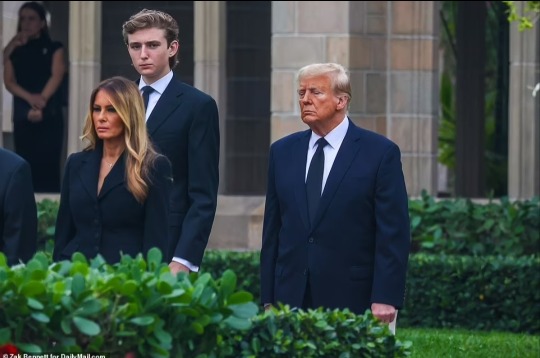
In her eulogy, the Slovenian-born former first lady paid tribute to her mother’s “nurturing spirit” and “unparalleled affection.”
“She embodied the best mother, wife, grandmother, mother-in-law — a true beacon of love and luxury in our lives,” Melania Trump said. “She’s a true inspiration, a role model to me, and to so many.”
Trump likewise paid tribute to Knavs during his victory speech at the Iowa caucuses, saying, “She’s up there, way up there. She’s looking down and she’s so proud of us. And I just want to say to Amalija, you are special, one of the most special people I’ve ever known.”
Trump’s adult children from his previous two marriages also attended the service for Melania Trump’s mother: daughters Ivanka Trump and Tiffany Trump and their husbands, Jared Kushner and Michael Boulos, and sons, Don Jr. and Eric, and their partners, Kimberly Guilfoyle and Lara Trump.
Trump’s in-laws remained in their native Slovenia after Melania Trump moved to New York City to become a model in 1996 and after she married Trump in 2005. They moved to the United States when Trump was president, and Melania Trump sponsored their bid to become citizens in 2018. After Trump lost the 2020 election to Joe Biden, he, Melania and Barron re-located to Mar-a-Lago. Amalija and Viktor Knavs joined them at the resort, “living it up as well-heeled retirees” and spending a great deal of time with their daughter and grandson, as the New York Post reported.
Meanwhile, Trump has reportedly been able to spend more time with his youngest son since leaving the White House and moving to Mar-a-Lago. In a 2015 People interview, Melania Trump admitted to being the more hands-on parent due to her husband’s first presidential campaign. But free from running the country or a real estate empire at Mar-a-Lago, Trump sometimes plays golf with his son or enjoys a one-on-one dinner with him, TheThings.com reported. Melania Trump told People about the “beautiful respect and admiration” that exists between father and son, and that “Barron loves to be one-on-one with Dad.”
Barron’s natural athleticism and height also makes Trump proud, according to reports. At a 2020 campaign rally, Trump called him out, proclaiming, “My Barron. My tall Barron. My beautiful Barron. Handsome. He is handsome.”"
youtube
Donald Trump's youngest son Barron is now comfortably the tallest in the family, towering over his father at his grandmother's funeral.
Father and son stood next to each other as they mourned Melania Trump's mother Amalija Knavs, who died on January 9 aged 78.
Barron, now 17, stands at 6ft, 7 inches - taller even than his ex-president father who at 6ft, 3 inches is a towering figure himself.
The teenager stood beside Donald Trump, Melania, and Knavs' widower Viktor, dwarfing all three as they waited for the coffin to arrive on Thursday morning.
Knavs was farewelled by about 100 mourners at Bethesda-by-the-Sea Episcopal Church in Palm Beach, Florida, where Melania gave a moving eulogy.
Barron's four-inch height advantage over his father was obvious from the moment they got out of the car together, as the boy put a guiding hand on Trump's arm.
Melania in her eulogy gushed about her mother's love for her grandson Barron, whom she 'showered with affection, illuminating his world with love, tender care and unwavering devotion'.
Trump credited his son's impressive growth to Knavs' traditional Slovenian cooking at a campaign event before the Iowa Republican caucuses.
'That's how he got so tall, he only ate her food,' he joked to the crowd of supporters.
'I said you're gonna be a basketball player. He said, "well, I like soccer dad, actually". But you can't talk them into everything! Barron was a special boy.'
Barron is said to have a close bond with his grandmother, who along with Viktor taught him to speak Slovenian as he grew up.
Bojan Pozar wrote in his book 'Melania Trump - The Inside Story: The Potential First Lady' that Barron 'almost certainly speaks Slovenian with... Ines, his aunt, who also lives in New York'.
'Ines Knavs was the one who took care of all the paperwork at the Slovenia consulate in New York so that Barron could formally acquire Slovenian citizenship,' he added.
Barron is believed to be the first son of a president to have dual citizenship.
Barron has grown dramatically since his father's inauguration in January 2017 when he was just 10
Barron Trump, 6.7 towers over his father at grandmother's funeral
The teenager stood beside Donald Trump, Melania, and Knavs' widower Viktor (left), dwarfing all three as they waited for the coffin to arrive on Thursday morning
They walked slowly towards the church as a foursome, in complete silence, dozens of agents looking on, the three men wearing black suits and ties and Melania in a black suit jacket, black skirt and a silver cross around her neck
Other photos from the funeral show Barron next to his grandfather Viktor and various other mourners - and being far taller than all of them.
Mourners joined Melania and her father Viktor Thursday morning at the same picturesque Palm Beach church where she married Trump nearly two decades earlier.
The former president flew into Florida in the early hours to be at his wife's side, the pair following closely behind the hearse in one of around a dozen black SUVs, arriving just after 10am.
Melania and Trump were accompanied by Barron while Knavs' widower Viktor looked visibly upset but paused to compose himself before joining the others.
They walked slowly towards the church as a foursome, in complete silence, dozens of agents looking on, the three men wearing black suits and ties and Melania in a black suit jacket, black skirt and a silver cross around her neck.
Reverend Tim Schenck, who joined Bethesda as rector in 2022, stood at the church entrance waiting to greet them with a somber nod of the head and some brief words of comfort.
Melania remained stoic and expressionless behind her black jumbo sunglasses as all four turned in unison to watch as Knavs' coffins, bedecked with a dazzling display of white roses, orchids and lillies was carried from the street to the church.
Finally they all turned to go inside, the coffin entering behind them, passing another huge pink and white floral display comprised of roses, carnations and daisies.
All four emerged from the church just behind the coffin, which was carried by six pallbearers
Melania maintained her steely composure as she emerged from church, watching in silence as the coffin was carried outside, flanked by pallbearers and clergy
Melania Trump delivered a touching eulogy for her mother Amalija Knavs, who died January 9, aged 78
Barron is spotted towering over his mother and father as they left the funeral of his grandmother
Inside as she gave the eulogy, Melania's voiced cracked from the podium as she said, 'Rest in peace, my beloved mother'.
'Her nurturing spirit had no limits, creating a legacy that will last for generations,' she said.
'With her beauty and impeccable sense of style she turned heads. But it was her unwavering dedication and hard work that made her exceptional.'
Melania maintained her steely composure as she emerged from church, watching in silence as the coffin was carried outside, flanked by pallbearers and clergy.
As the procession reached the road and she watched her mom being loaded back into the hearse, Trump reached out and tenderly squeezed his wife's hand.
She left in the same vehicle as her dad while Trump followed in another SUV, giving a nod of gratitude to Secret Service agents who closed the road to ensure a smooth getaway for mourners.
Melania's mother Amalija Knavs (center, pictured in June 2018) was laid to rest on Thursday at the same picturesque Palm Beach church where her daughter married Donald Trump nearly two decades earlier
The Trumps have been regulars at the 125-year-old chapel since Melania wed then-real estate mogul Donald there in 2005 in front of VIP guests including Hillary and Bill Clinton.
A year later, Barron was christened at the Gothic-Revival style venue, which is less than three miles from Trump's swish Florida residence, Mar-a-Lago.
The Trumps also attended several Christmas services there throughout his Presidency.
Former First Lady Melania Trump 's mother Amalija Knavs, 78, died after being hospitalized in Miami, Florida, over the holidays
It was unclear if Donald Trump would make it after a heated exchange with a New York federal judge overseeing E Jean Carroll's defamation case against him. The judge denied an application to delay the trial.
At the funeral Thursday, Trump seemed to put aside his anger and his need to be the center of attention. He wore a solemn expression as he let Melania Trump lead the proceedings. He walked to the side of her, her father, Viktor Knavs, and Barron as the four entered the Episcopal Church of Bethesda-by-the-Sea in Palm Beach, not far from his Mar-a-Lago estate.
Judge Lewis Kaplan noted that the former president was not legally obliged to be court in person anyway.
https://www.dailymail.co.uk/news/article-12980173/barron-trump-donald-melania-mother-funeral-florida.html?ito=native_share_article-bottom
#FLOTUS#POTUS#first lady melania#melania trump#barron trump#Trump Family#Condolences#Motherless mothers#grief#sympathy#donald trump
35 notes
·
View notes
Text
I think we knew that a federal indictment of former president Donald Trump would elicit a collective primal scream from the right-wing fever swamp — and they have not disappointed.
In true Trump-era fashion, the response from most elected Republicans has been a collective whine about "unfairness" and the "weaponization" of the "deep state." Some have even gone so far as to at least hint around that it's a nice little country we have here, be a shame if anything happened to it. I would expect nothing less. This is how they roll.
There are, notably, a few dissenters from that party line.
Utah Sen. Mitt Romney put out a statement saying that Trump "brought this on himself" and it's "consistent with his other actions offensive to the national interest," which is true. Former New Jersey Gov. Chris Christie, a 2024 GOP hopeful, said "these facts are devastating," which is also true. But they, and a handful of others, are outliers among GOP elected officials.
One very significant former GOP official has come out swinging, however:

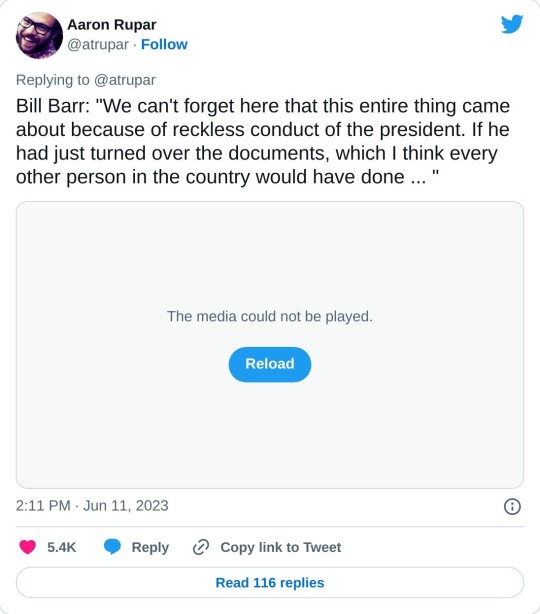
There are a number of Trump defenses out there. But the main talking point, which we can assume was coordinated, is that this is a political prosecution engineered by President Biden to take out his most threatening political rival. And their main proof of this is that the Department of Justice (DOJ) declined to prosecute Hillary Clinton. Sen. Lindsey Graham of South Carolina probably articulated this the best, including the deployment of some very emotional righteous indignation:
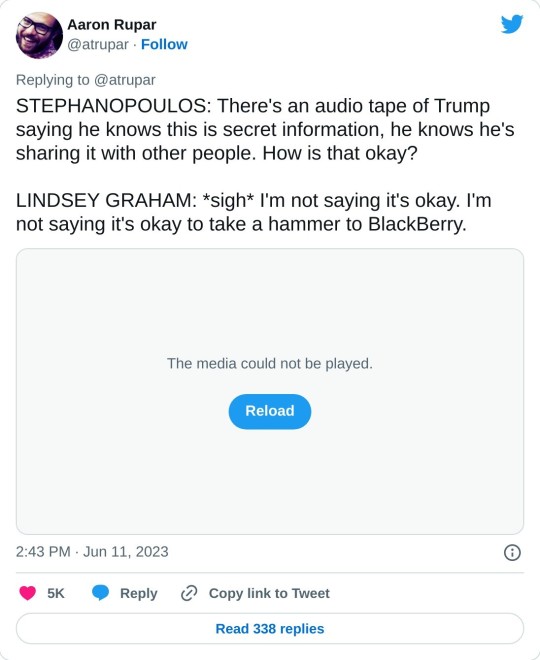
He's not saying it's ok, he's just saying that Hillary Clinton got off so that cancels out Trump's crimes. Or something.
Sen. Ron Johnson, R-Wi. says that Trump refused to prosecute Clinton but Joe Biden sent in a SWAT Team to torment Trump:

Florida Gov. Ron DeSantis sounded the same theme:
“Is there a different standard for a Democrat secretary of state versus a former Republican president? I think there needs to be one standard of justice in this country. Let's enforce it on everybody and make sure we all know the rules.”
It wasn't a perfect defense of Trump but as long as he makes sure to condemn Hillary Clinton is probably good enough for the moment.
As much as I loathe the idea of re-litigating "but her emails," I'm sorry to say that it's necessary. There was almost no pushback to this talking point from the media, probably because they didn't get the Clinton story right in the first place. A few have since stepped up to point out that Clinton didn't refuse to cooperate with the government, as Trump did, although Trump and his accomplices will no doubt cry inanely about her "bleaching the emails" and "smashing the phones" and that will be enough to sustain the argument. Trump may even say "Russia, if you're listening" again. But those allegations are just plain silly and always have been. And the fact that she didn't obstruct the investigation is only part of the story.
As it happened, Clinton copied all work emails to the State Department system so they had them. The Justice Department inspector general issued a report in 2018 about the FBI Investigation and determined that the people tasked with marking documents as classified had not done so clearly. Moreover, only three email chains "contained any classification markings of any kind," and they were low-priority "call sheets" marked with the lowest priority of classification, which had info and details for Clinton to refer to when talking to a foreign leader. There were no nuclear secrets or war plans among them, needless to say.
The State Department under Rex Tillerson and Mike Pompeo did two separate investigations and found in 2019 that there was "there was no persuasive evidence of systemic, deliberate mishandling of classified information" and that Clinton bore no "individual culpability."
And let's dispense with the "magnanimous" Trump defense. Trump tried desperately to get the DOJ to investigate Clinton (and many others he considered his political enemies.) His White House counsel told him that the DOJ operated independently and if he ordered it there would be tremendous unrest from career officials and massive political blowback. That didn't stop him. He conspired with Matthew Whittaker, then an assistant to then-Attorney General Jeff Sessions to get Sessions to assign a Special Counsel to investigate Clinton. In the end, they succeeded in getting Sessions to assign John Huber, a US Attorney in Utah to look into all the allegations against Clinton, including the bogus "Uranium One" scandal which had also already been dismissed. That investigation didn't turn up anything either.
Notably, when Bill Barr became Attorney General he looked into all of it and also came up with nothing. If anyone thinks that Barr wouldn't have prosecuted Clinton if he could have doesn't recall just how much he hates her guts. The evidence just wasn't there. So, the FBI, the DOJ Inspector General, two State Department probes, a Clinton-hating attorney general and a U.S. Attorney assigned to review all the evidence found that Clinton committed no crimes. (I'm not even counting the 10 Benghazi investigations which were the genesis of the email scandal —- and also came up empty.)
I know your eyes have glazed over by this point and you wonder why in the world anyone should care about this. And frankly, we shouldn't have to. It's long settled ancient history. But the right's "whatboutism" and the media's continued unwillingness to acknowledge that, once the FBI determined there was no crime, there was no crime, I fear that a lot of people who aren't already down the right wing rabbit hole will be persuaded that this is a partisan prosecution simply because of the words "classified documents."
When former FBI Director James Comey held that first notorious press conference in the summer of 2016, in which he larded with inappropriate personal judgments about Clinton, he laid out the criteria the Justice Department uses when it decides whether to prosecute classified documents cases. He said:
“In looking back at our investigations into mishandling or removal of classified information, we cannot find a case that would support bringing criminal charges on these facts. All the cases prosecuted involved some combination of: clearly intentional and willful mishandling of classified information; or vast quantities of materials exposed in such a way as to support an inference of intentional misconduct; or indications of disloyalty to the United States; or efforts to obstruct justice. We do not see those things here.”
Assuming they have proof of the charges in the Trump indictment, there can be little doubt that they met three of those four criteria, (the fourth being disloyalty to the United States which I believe to be true as well.) So when you see these Republicans emitting their epic whines about how unfair all this is because Hillary didn't get indicted, keep in mind that it wasn't for lack of Trump trying to get it done. It was because, unlike him, she didn't break the law. And even Jeff Sessions, Rex Tillerson, Mike Pompeo and Bill Barr couldn't find a way to make it so.
In case you were wondering, yes the House Republicans are considering a new investigation into —- you guessed it —- her emails. Because of course they are.
#us politics#news#op eds#salon#republicans#conservatives#donald trump#hillary clinton#sen. mitt romney#chris christie#Sen. Lindsey Graham#aaron rupar#tweet#bill barr#george stephanopoulos#Sen. Ron Johnson#Gov. Ron DeSantis#president joe biden#Rex Tillerson#mike pompeo#Matthew Whittaker#jeff sessions#John Huber#Uranium One scandal#benghazi committee#James Comey#2023
71 notes
·
View notes
Text
Vote Blue
#us politics#video#sen. bernie sanders#2022#2022 elections#2022 midterms#breaking points#sen. lindsey graham#social security#social security checks#medicare#medicaid#Republicans#gop#conservatives#rep. steve scalise#fox news#alex wagner#msnbc#debt ceiling#national debt#rep. kevin mccarthy#sen. rick scott#sen. ron johnson#blake masters#rep. jim banks#lower prescription drug prices#inflation reduction act
40 notes
·
View notes
Text
My Top 10 US Senators (2023)
This post is for 'My Top 10 US Senators' I'd like to fuck and is purely based on appearance, not politics. If you don't agree, either scroll onwards, post your own idea or try another blog.
#10. Sen. Jack Reed (D-RI)

An American lawyer and politician serving as the senior United States senator from Rhode Island. Cute little guy whose diminutive height 5 feet 7 inches on a good day, makes him a perfect pocket daddy.
#9. Sen. Tommy Tuberville (R-AL)

A former American football coach, former player, and Republican politician. He’s what you think a senator would look like. I’d love to fuck around in bed with him for a weekend.
#8. Sen. Gary Peters (D-MI)

An American politician and businessman serving as the junior United States Senator from Michigan since 2015. A bearded, buttoned-down genial Midwesterner known in the Senate mostly for steering as far clear from the spotlight as he possibly can. One ally calls him a “worker bee,” while a Republican describes him as “about as exciting as a bowl of cold oatmeal.” I’d call him hot as hell.
#7. Sen. Joe Manchin (D-WV)
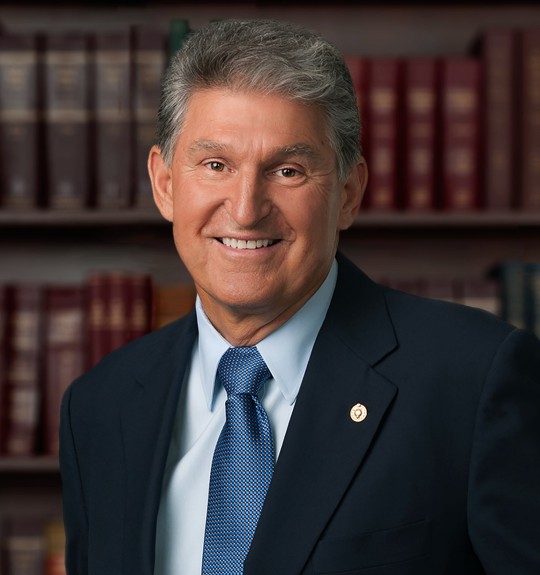
An American politician serving as the senior United States senator from West Virginia, a seat he has held since 2010. Another politician who has a lot of political hate, but I fuck him. And if I’m the only one who wants to ride him till he busts. So be it. If Virginia is for lovers, I say West Virginia is for fuckers.
#6. Sen. Tim Kaine (D-VA)
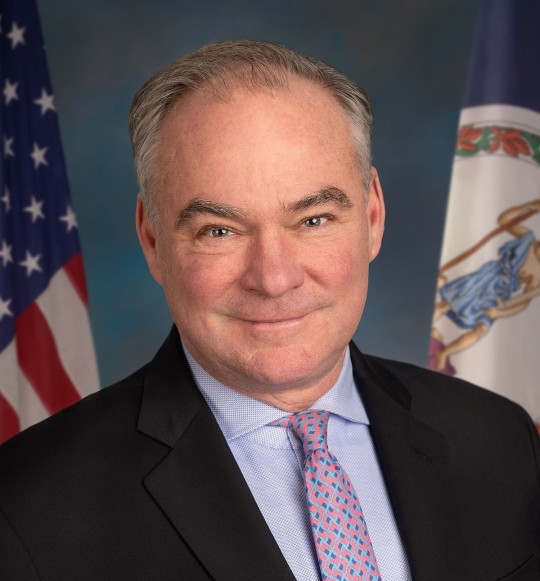
An American lawyer and politician serving as the junior United States senator from Virginia since 2013. Just by the look in his eyes makes me think Tim could be a hell of a good fuck. Nothing to base that on.
#5. Sen. Lindsey Graham (R-SC)

An American politician serving as the senior United States senator from South Carolina, a seat he has held since 2003. Of course I’ve got my senate bottom bitch, Sen. Graham here. I kinda understand all the political hate, but I think he’s a mature southern gentleman from my state and I’d love to beat his ass like he stole something from me. And when I’m done with him, I’ll send him over to the next guy as I know I’m not the only one who’d fuck him.
#4. Sen. Mike Rounds (R-SD)

An American businessman and politician serving as the junior United States Senator from South Dakota since 2015. I need to give Sen. Rounds, who I affectionally call “Mike Pounds” some more love. Because he could get “The Dick,” some ass or what ever he wants from me.
#3. Sen. Eric Schmitt (R-MI)
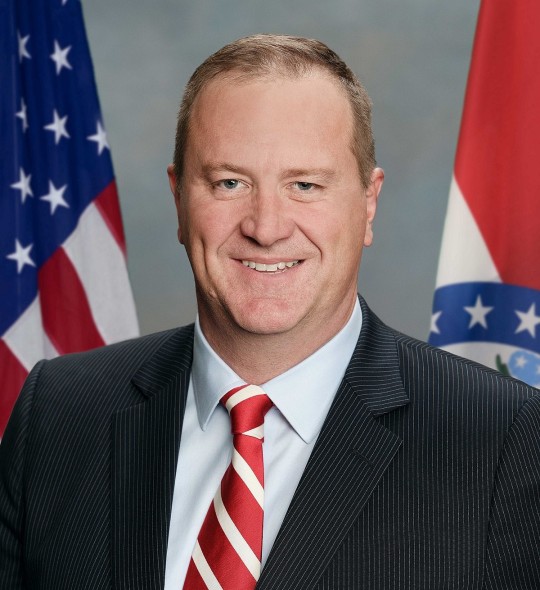
An American lawyer and politician serving as the junior United States senator from Missouri since 2023. The newest senator is tall at At 6’6”, handsome and wears boots. That's enough for me to want more of him.
#2. Sen. Ted Cruz (R-TX)
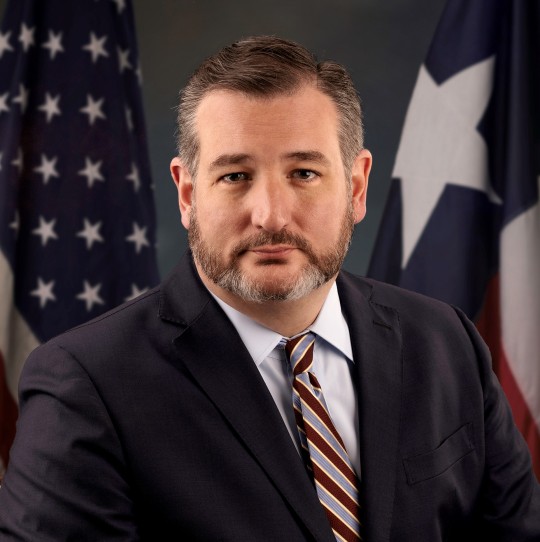
An American politician and attorney serving as the junior United States Senator for Texas since 2013. Honestly, Ted's here and this high only to piss off liberal, super political fuckers who can't separate looks from politics. Now that doesn't mean I don't want him naked in my bed with my jizz all over his face.
#1. Sen. Jon Tester (D-MT)
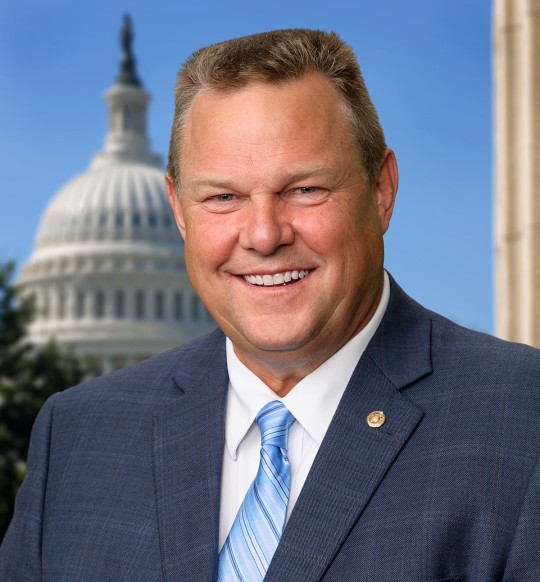
An American politician serving as the senior United States Senator from Montana, in office since 2007. If you didn’t know that Jon would be my #1, you must be a new follower.
HONORABLE MENTIONS:
Sen. Sheldon Whitehouse
Sen. Rand Paul
Sen. Ron Johnson
#top 10 list#top ten list#jon tester#jack reed#ted cruz#mike rounds#eric schmitt#tommy tuberville#tim kaine#lindsey graham#joe manchin#gary peters#us senator#american politician#politician
56 notes
·
View notes
Text
Sen. Lindsey Graham (R-S.C.) on Wednesday blasted Mark Zuckerberg, the CEO of Meta, over the company’s content moderation policies, specifically regarding children and teenagers, which was the subject of a Senate Judiciary Committee hearing.
“Mr. Zuckerberg, you and the companies before us, I know you don’t mean it to be so, but you have blood on your hands,” Graham said as cheers erupted from spectators in the hearing room.
“You have a product that’s killing people,” he added.
Zuckerberg, X CEO Linda Yaccarino, TikTok CEO Shou Chew, Snap CEO Evan Spiegel, and Discord CEO Jason Citron all appeared before the panel during its hearing titled “Big Tech and the Online Child Sexual Exploitation Crisis.”
“It is now time to repeal section 230,” Graham said, referring to a federal law that allows online operators and publishers to moderate content on their platforms as they wish.
Earlier during the hearing, Zuckerberg told the committee, “These issues are important every parent and every platform committed to continuing to work in these areas. And I hope we can make progress today.”
A person in the audience at the hearing, which is filled with parent advocates in the crowd, yelled out “no thanks” in response.
22 notes
·
View notes
Text
It has been clear for some time that US corporate news media have explicitly taken a side on the Ukraine War. This role includes suppressing relevant history of the lead-up to the war (FAIR.org, 3/4/22), attacking people who bring up that history as “conspiracy theorists” (FAIR.org, 5/18/22), accepting official government pronouncements at face value (FAIR.org, 12/2/22) and promoting an overly rosy picture of the conflict in order to boost morale.
For most of the war, most of the US coverage has been as pro-Ukrainian as Ukraine’s own media, now consolidated under the Zelenskyy government (FAIR.org, 5/9/23). Dire predictions sporadically appeared, but were drowned out by drumbeat coverage portraying a Ukrainian army on the cusp of victory, and the Russian army as incompetent and on the verge of collapse.
Triumphalist rhetoric soared in early 2023, as optimistic talk of a game-changing “spring offensive” dominated Ukraine coverage. Apparently delayed, the Ukrainian counteroffensive launched in June. While even US officials did not believe that it would amount to much, US media papered over these doubts in the runup to the campaign.
Over the last three months, it has become clear that the Ukrainian military operation will not be the game-changer it was sold as; namely, it will not significantly roll back the Russian occupation and obviate the need for a negotiated settlement. Only after this became undeniable did media report on the true costs of war to the Ukrainian people.
Overwhelming optimism
In the runup to the counteroffensive, US media were full of excited conversation about how it would reshape the nature of the conflict. NATO Secretary General Jens Stoltenberg told Radio Free Europe (4/21/23) he was “confident Ukraine will be successful.” Sen. Lindsey Graham assured Politico (5/30/23), “In the coming days, you’re going to see a pretty impressive display of power by the Ukrainians.” Asked for his predictions about Ukraine’s plans, retired Lt. Gen. Ben Hodges told NPR (5/12/23), “I actually expect…they will be quite successful.”
Former CIA Director David Patraeus, author of the overhyped “surge” strategy in Iraq, told CNN (5/23/23):
I personally think that this is going to be really quite successful…. And [the Russians] are going to have to withdraw under pressure of this Ukrainian offensive, the most difficult possible tactical maneuver, and I don’t think they’re going to do well at that.
The Washington Post’s David Ignatius (4/15/23) acknowledged that “hope is not a strategy,” but still insisted that “Ukraine’s will to win—its determination to expel Russian invaders from its territory at whatever cost—might be the X-factor in the decisive season of conflict ahead.”
The New York Times (6/2/23) ran a story praising recruits who signed up for the Ukrainian pushback, even though it “promises to be deadly.” Times columnist Paul Krugman (6/5/23) declared we were witnessing “the moral equivalent of D-Day.” CNN (5/30/23) reported that Ukrainians were “unfazed” as they “gear up for a counteroffensive.”
Cable news was replete with buzz about how the counteroffensive, couched with modifiers like “long-awaited” or “highly anticipated,” could turn the tide in the war. Nightly news shows (e.g., NBC, 6/15/23, 6/16/23) presented audiences with optimistic statements from Ukrainian President Volodymyr Zelenskyy and other figures talking about the imminent success.
Downplaying reality
Despite the soaring rhetoric presented to audiences, Western officials understood that the counteroffensive was all but doomed to fail. This had been known long before the above comments were reported, but media failed to include that fact as prominently as the predictions for success.
On April 10, as part of the Discord leaks story, the Washington Post (4/10/23) reported that top secret documents showed that Ukraine’s drive would fall “well short” of its objectives, due to equipment, ammunition and conscription problems. The document predicted “sustainment shortfalls” and only “modest territorial gains.”
The Post additionally cited anonymous officials who claimed that the documents’ conclusions were corroborated by a classified National Intelligence Council assessment, shown only to a select few in Congress. The Post spoke to a Ukrainian official who “did not dispute the revelations,” and acknowledged that it was “partially true.”
While the Post has yet to publish the documents in full, the leaks and the other sources clearly painted a picture of a potentially disastrous counteroffensive. Fear was so palpable that the Biden administration privately worried about how he could keep up support for the war when the widely hyped offensive sputtered. In the midst of this, Blinken continued to dismiss the idea of a ceasefire, opting instead to pursue further escalating the conflict.
Despite the importance of these facts, they were hardly reported on by the rest of corporate media, and dropped from subsequent war coverage. When the Post (6/14/23) published a long article citing Defense Secretary Lloyd Austin’s cautious optimism about the campaign, it neglected to mention its earlier reporting about the government’s privately gloomier assessments. The documents only started appearing again in the press after thousands were dead, and the campaign’s failure undeniable.
In an honest press, excited comments from politicians and commentators would be published alongside reports about how even our highest-level officials did not believe that the counteroffensive would amount to much. Instead, anticipation was allowed to build while doubts were set to the side.
Too ‘casualty-averse’?
By July, Ukrainian casualties were mounting, and it became clearer and clearer that the counteroffensive would fail to recapture significant amounts of Ukrainian territory. Reporting grew more realistic, and we were given insights into conditions on the ground in Ukraine, as well as what was in the minds of US officials.
According to the Washington Post (8/17/23), US and Ukrainian militaries had conducted war games and had anticipated that an advance would be accompanied by heavy losses. But when the real-world fatalities mounted, the Post reported, “Ukraine chose to stem the losses on the battlefield.”
This caused a rift between the Ukrainians and their Western backers, who were frustrated at Ukrainians’ desire to keep their people alive. A mid-July New York Times article (7/14/23) reported that US officials were privately frustrated that Ukraine had become too afraid of dying to fight effectively. The officials worried that Ukrainian commanders “fear[ed] casualties among their ranks,” and had “reverted to old habits” rather than “pressing harder.” A later Times article (8/18/23) repeated Washington’s worries that Ukrainians were too “casualty-averse.”
Acknowledging failure
After it became undeniable that Ukraine’s military action was going nowhere, a Wall Street Journal report (7/23/23) raised some of the doubts that had been invisible in the press on the offensive’s eve. The report’s opening lines say it all:
When Ukraine launched its big counteroffensive this spring, Western military officials knew Kyiv didn’t have all the training or weapons—from shells to warplanes—that it needed to dislodge Russian forces.
The Journal acknowledged that Western officials simply “hoped Ukrainian courage and resourcefulness would carry the day.”
One Post column (7/26/23) asked, “Was Gen. Mark Milley Right Last Year About the War in Ukraine?” Columnist Jason Willick acknowledged that “Milley’s skepticism about Ukraine’s ability to achieve total victory appears to have been widespread within the Biden administration before the counteroffensive began.”
And when one official told Politico (8/18/23), “Milley had a point,” acknowledging the former military head’s November suggestion for negotiations. The quote was so telling that Politico made it the headline of the article.
Even Rep. Andy Harris (D-Md.), co-chair of the congressional Ukraine Caucus, publicly questioned whether or not the war was “winnable” (Politico, 8/17/23). Speaking on the counteroffensive’s status, he said, “I’ll be blunt, it’s failed.”
Newsweek (8/16/23) reported on a Ukrainian leadership divided over how to handle the “underwhelming” counteroffensive. The Washington Post (8/17/23) reported that the US intelligence community assessed that the offensive would fail to fulfill its key objective of severing the land bridge between Russian-occupied eastern Ukraine and Crimea.
As the triumphalism ebbed, outlets began reporting on scenes that were almost certainly common before the spring push but had gone unpublished. One piece from the Post (8/10/23) outlined a “darken[ed] mood in Ukraine,” in which the nation was “worn out.” The piece acknowledged that “Ukrainian officials and their Western partners hyped up a coming counteroffensive,” but there was “little visible progress.”
The Wall Street Journal (8/1/23) published a devastating piece about the massive number of amputees returning home from the mine-laden battlefield. They reported that between 20,000 and 50,000 Ukrainians had lost one or more limbs as a result of the war—numbers that are comparable to those seen during World War I.
Rather than dwelling on the stalled campaign, the New York Times and other outlets focused on the drone war against Russia, even while acknowledging that the remote strikes were largely an exercise in public relations. The Times (8/25/23) declared that the strikes had “little significant damage to Russia’s overall military might” and were primarily “a message for [Ukraine’s] own people,” citing US officials who noted that they “intended to demonstrate to the Ukrainian public that Kyiv can still strike back.” Looking at the quantity of Times coverage (8/30/23, 8/30/23, 8/23/23, 8/22/23, 8/22/23, 8/21/23, 8/18/23), the drone strikes were apparently aimed at an increasingly war-weary US public as well.
War as desirable outcome
The fact that US officials pushed for a Ukrainian counteroffensive that all but expected would fail raises an important question: Why would they do this? Sending thousands of young people to be maimed and killed does nothing to advance Ukrainian territorial integrity, and actively hinders the war effort.
The answer has been clear since before the war. Despite the high-minded rhetoric about support for democracy, this has never been the goal of pushing for war in Ukraine. Though it often goes unacknowledged in the US press, policymakers saw a war in Ukraine as a desirable outcome. One 2019 study from the RAND Corporation—a think tank with close ties to the Pentagon—suggested that an effective way to overextend and unbalance Russia would be to increase military support for Ukraine, arguing that this could lead to a Russian invasion.
In December 2021, as Russian President Vladimir Putin began to mass troops at Ukraine’s border while demanding negotiations, John Deni of the Atlantic Council published an op-ed in the Wall Street Journal (12/22/21) headlined “The Strategic Case for Risking War in Ukraine,” which laid out the US logic explicitly: Provoking a war would allow the US to impose sanctions and fight a proxy war that would grind Russia down. Additionally, the anti-Russian sentiment that resulted from a war would strengthen NATO’s resolve.
All of this came to pass as Washington’s stance of non-negotiation successfully provoked a Russian invasion. Even as Ukraine and Russia sat at the negotiation table early in the war, the US made it clear that it wanted the war to continue and escalate. The US’s objective was, in the words of Raytheon boardmember–turned–Defense Secretary Lloyd Austin, “to see Russia weakened.” Despite stated commitments to Ukrainian democracy, US policies have instead severely damaged it.
NATO’s ‘strategic windfall’
In the wake of the stalled counteroffensive, the US interest in sacrificing Ukraine to bleed Russia was put on display again. In July, the Post‘s Ignatius declared that the West shouldn’t be so “gloomy” about Ukraine, since the war had been a “strategic windfall” for NATO and its allies. Echoing two of Deni’s objectives, Ignatius asserted that “the West’s most reckless antagonist has been rocked,” and “NATO has grown much stronger with the additions of Sweden and Finland.”
In the starkest demonstration of the lack of concern for Ukraine or its people, he also wrote that these strategic successes came “at relatively low cost,” adding, in a parenthetical aside, “(other than for the Ukrainians).”
Ignatius is far from alone. Hawkish Sen. Mitt Romney (R–Utah) explained why US funding for the proxy war was “about the best national defense spending I think we’ve ever done”: “We’re losing no lives in Ukraine, and the Ukrainians, they’re fighting heroically against Russia.”
The consensus among policymakers in Washington is to push for endless conflict, no matter how many Ukrainians die in the process. As long as Russia loses men and material, the effect on Ukraine is irrelevant. Ukrainian victory was never the goal.
‘Fears of peace talks’
Polls show that support for increased US involvement in Ukraine is rapidly declining. The recent Republican presidential debate demonstrated clear fractures within the right wing of the US power structure. Politico (8/18/23) reported that some US officials are regretting potential lost opportunities for negotiations. Unfortunately, this minority dissent has yet to affect the dominant consensus.
The failure of the counteroffensive has not caused Washington to rethink its strategy of attempting to bleed Russia. The flow of US military hardware to Ukraine is likely to continue so long as this remains the goal. The Hill (9/5/23) gave the game away about NATO’s commitment to escalation with a piece titled “Fears of Peace Talks With Putin Rise Amid US Squabbling.”
But even within the Biden administration, the Pentagon appears to be at odds with the State Department and National Security Council over the Ukraine conflict. Contrary to what may be expected, the civilian officials like Jake Sullivan, Victoria Nuland and Antony Blinken are taking a harder line on perpetuating this conflict than the professional soldiers in the Pentagon. The media’s sharp change of tone may both signify and fuel the doubts gaining traction within the US political class.
37 notes
·
View notes
Text
Lindsey Graham

Physique: Average Build
Height: 5′ 7″ (1.70 m)
Lindsey Olin Graham (born July 9, 1955 -) is an American lawyer and politician serving as the senior United States senator from South Carolina, a seat he has held since 2003. A member of the Republican Party, Graham chaired the Senate Committee on the Judiciary from 2019 to 2021. He was also a 2016 GOP presidential candidate. A native of Central, South Carolinian, Graham served in U.S. Air Force and Reserve being awarded a Bronze Star Medal for meritorious service in 2014 and held the rank of colonel.

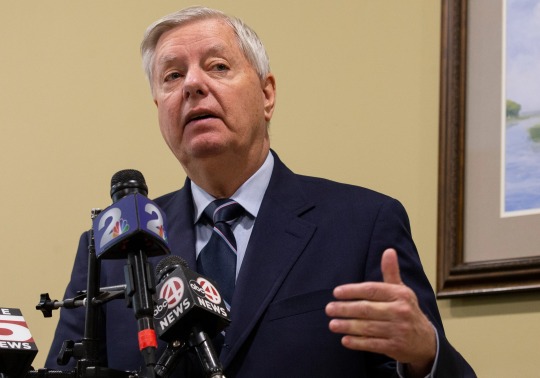

Considered one of America’s most unpopular senators, I actually think he's quite handsome in a geeky sort of way. But he’s just so effeminate and innocent looking that I just can’t stand to here him talk. Luckily, there is something I can do about that. A little throat blockage if you know what I mean. And I think privately, Lindsey would approve.
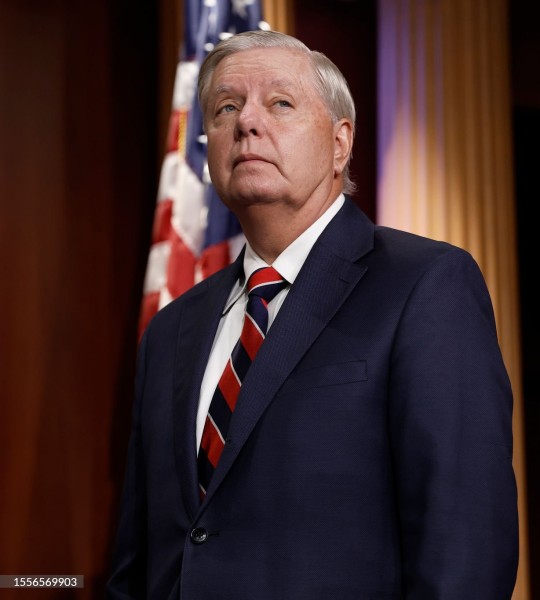

Graham has never been married and has no children. And he pings like hell. Sure I can believe that he's so career oriented that he didn't have time find a wife and have kids. But he just seems like he would love being a cock sock behind closed doors. That last part is a complete fabrication, BUT if he would come out tomorrow. No one and I mean NO ONE would be surprised.

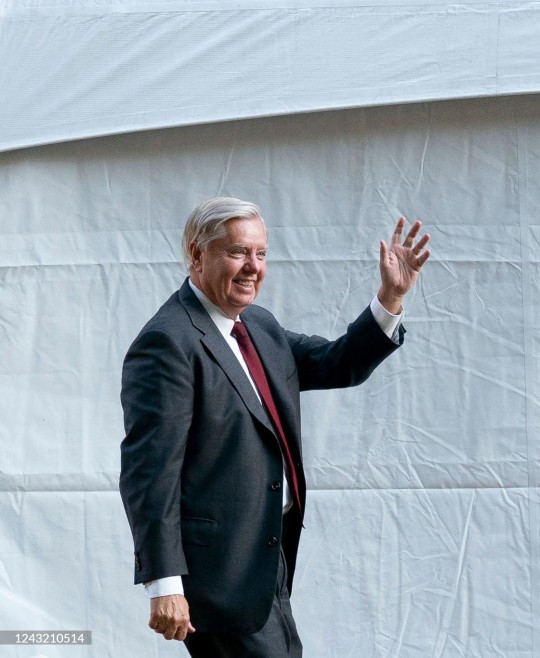
I know some of you don’t like Sen. Graham, but if your a daddy lover. You got to admit, he’s nice to look at. And if I’m the only one who wants to fuck him, I’ll gladly put the dick to him. And odds are, he’s already had a dick or three.
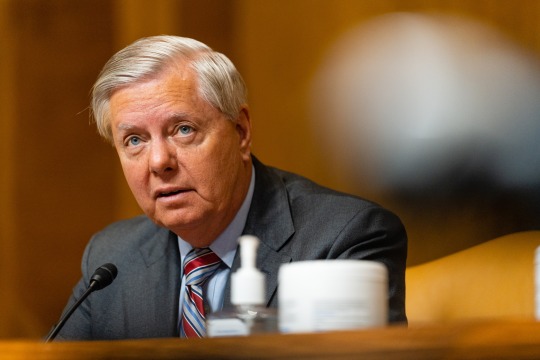
48 notes
·
View notes